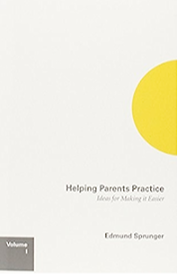|
As your child’s at-home practice partner, your support is integral to their development as a musician. But, some of the things we naturally want to do or think we should be doing can actually make practice more difficult for the child and even create conflict in the parent/child relationship. No one wants that!
Edmund Sprunger, a psychoanalyst, social worker, Suzuki violin teacher, and author (Helping Parents Practice: Ideas for Making it Easier), has a rather mind-blowing observation about kids and parents practicing (or doing homework, etc) together. This is paraphrased from a teacher workshop I attended last year: When children are practicing, they don’t need a teacher, they need a parent/supporter. Your job during practice is not to teach them, but to help them tolerate practice. 🤯 Kids work in a different way with a parent than with a teacher. With a parent, their main concern is that we still love them. Certain things parents may do or say in a practice/homework session when we are trying to “teach” them can make them feel insecure in this (however illogical it seems to us) and cause them to act out, shut down, etc. Our job as parents is not to point out and fix their mistakes, but to help them through the hard feelings that arise with having to work hard to make something happen, so that they can experience the great feelings that come from working hard and growing from it. Things to AVOID:
“Are you happy with how that sounded?” “What would you like to do the same/differently the next time you play it?” etc
Practice itself isn’t usually “fun,” but it certainly leads to fun. Once your child gains some proficiency on their instrument, it opens up a whole new world of creative opportunity!
0 Comments
|

 RSS Feed
RSS Feed
